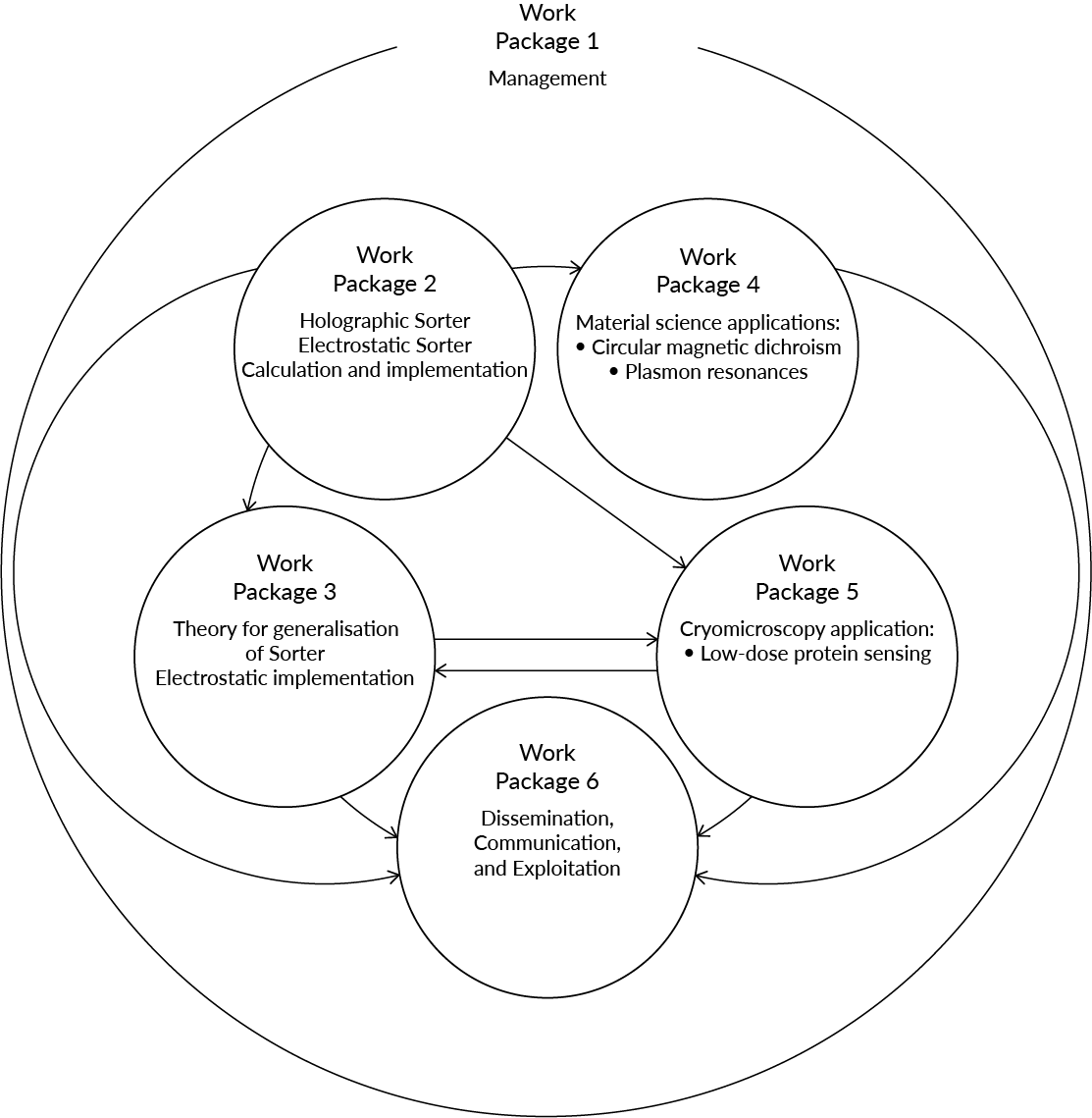The Q-SORT Consortium comprises some of the top players in the world of orbital angular momentum (OAM), quantum optics, transmission electron microscopy (TEM) including cryoTEM:
![]()
CNR-NANO (Project Coordinator) – Italy

Forschungszentrum Jülich – Germany
![]()
FEI (Thermo Fisher Scientific) – The Netherlands

Max Planck Institut – Germany

University of Glasgow – United Kingdom

QED Film & Stage Productions Ltd. – United Kingdom

Università di Modena e Reggio Emilia – Italy
![]()
Maastricht University – The Netherlands
The Consortium has been tailor-made in order to reach project goals as quickly and effectively as possible, but also to attain maximum impact in the scientific world and in society at large. The wide cross-section of skills and geographical spread in the Consortium ensure that all requirements of responsiveness and adaptive change, diversity and inclusion, openness and transparency, anticipation and reflection are satisfied.
Members of the Consortium complement each other thus: CNR, Forschungszentrum Jülich, and University of Modena and Reggio Emilia are world leaders in electron-beam shaping; University of Glasgow and Max Planck Institute are pioneers in OAM and quantum optics; Maastricht University is an important innovator in protein studies; Thermo Fisher (formerly FEI) is a major world-wide developer and manufacturer of microscopes; QED is a young SME from the creative industry led by an award-winning producer-director.


